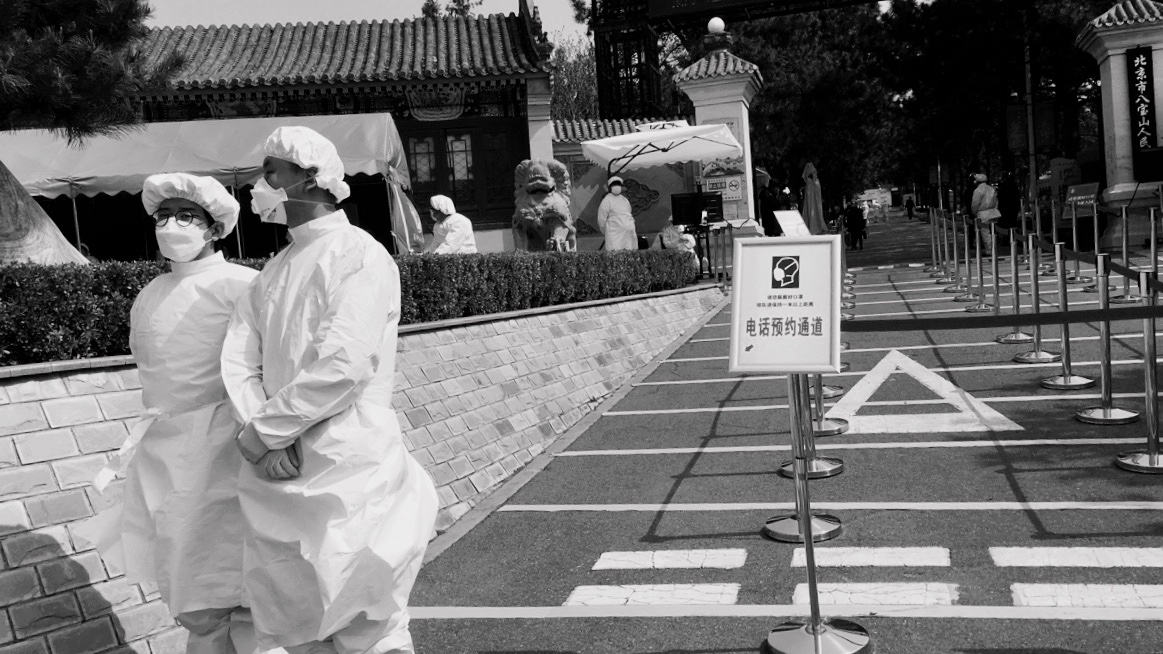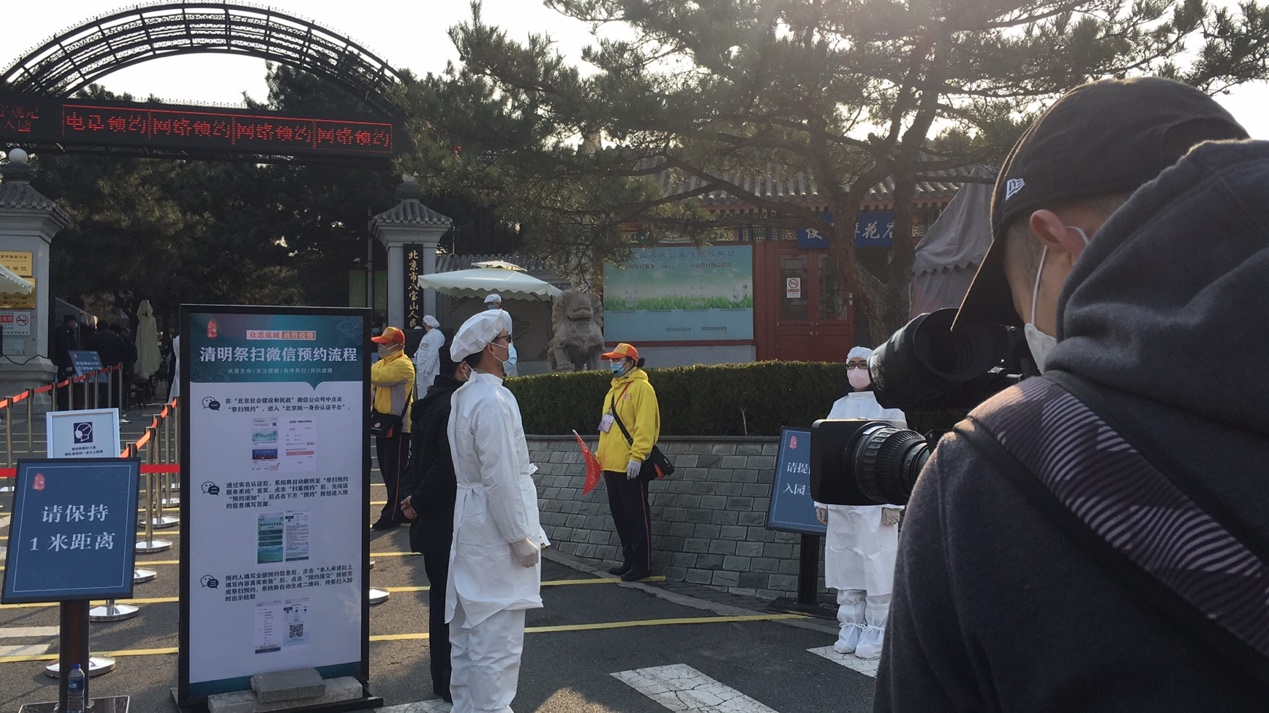02:44

China's annual Tomb-Sweeping Day, also known as the Qingming Festival, is a time for remembering deceased loved ones by visiting their graves. This year's commemorations are happening under different guidelines.
China's Ministry of Civil Affairs suggested local governments should suspend group activities on that day, such as collective public offerings and non-profit burial ceremonies, in accordance with their own COVID-19 control situation to prevent cross-infection brought by mass gatherings.
At Babaoshan People's Cemetery located in west Beijing, Ding Yong and his sister arrived early in the morning to pay their respects to their father.
They rinsed the tomb stone, and presented a bouquet of chrysanthemums to their late father, representing their cherished memories. As part of the Chinese tradition, they also brought fruits and pastries, a Chinese way of remembering the deceased loved ones.
Unlike past years,when Ding came with his whole family, including brothers and sisters, this year only people who made an appointment were allowed to get in the cemetery.
Ding told CGTN that the appointment only allows three people at once due to the COVID-19, so his other relatives will come to pay respect to his father later in the week.

A billboard at one of the entrance of the Babaoshan People's Cemetery displays the process of making appointment online. Liu Yang/CGTN
A billboard at one of the entrance of the Babaoshan People's Cemetery displays the process of making appointment online. Liu Yang/CGTN
For everyone being here, it's heart-rending.
One employee said the total number of visitors per day last year was around 20,000, and 50,000 on peak days. But this year, due to the coronavirus, the cemetery only allows a maximum of 3,300 people per day. So far, over 450,000 people have booked memorial services in Beijing.
Zhu Xiaoqing, who was on the way out of the cemetery, told CGTN that she prefers making an appointment, because it's less crowded.
In China's capital, memorial services started on the March 21st, and last for 23 days. Besides booking the date and time of visitation on site, one can also make an appointment via telephone and internet.
"The cemetery launched the appointment service this year to reduce gatherings. If people decide not to come on-site, cemetery staff can take their place and pay respects to their loved ones," Meng Xiankai, the Deputy Director of Babaoshan People's Cemetery said, adding this year's booking is time-sharing, which means the day will be cut into nine periods from 7 am to 4 pm to better disperse the flow of people.
In Tianjin, authorities decided on March 1st to suspend memorial services. Shanxi Province allowed cemetery staff to pay respects for the public. Guangdong Province launched a "cloud tomb-sweeping" service, through which people set an online tomb and pay respect to the deceased online. Shanghai's public cemeteries have received almost a million online visits since March 14.
Qingming is of considerable significance to Chinese, especially for people in Wuhan these days, many of whom lost family members to COVID-19.